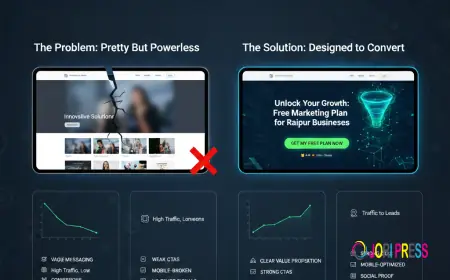How to Speed Up Legal and Compliance Search Processes?

In today’s fast-paced regulatory and corporate landscape, Legal and Compliance Search processes play a critical role in ensuring organizations remain compliant, mitigate risks, and respond promptly to legal or regulatory inquiries. However, speed is often just as important as accuracy. Delays in retrieving crucial compliance documents, case references, or legal data can lead to costly penalties, operational bottlenecks, and reputational damage.
The challenge lies in streamlining these searches without compromising the quality or completeness of the information retrieved. With the right strategies, tools, and workflows, organizations can significantly accelerate their legal and compliance search processes while maintaining the integrity of their results.
Manual searches through legal archives, compliance reports, or case databases can be time-consuming and prone to errors. Advanced technologies like AI-powered legal search tools, Natural Language Processing (NLP), and machine learning can dramatically speed up data retrieval.
These tools understand the context of queries, not just keywords, enabling them to return highly relevant results faster. For example:
- AI-driven compliance search engines can scan thousands of documents in seconds.
- NLP can interpret complex legal phrasing to find exact matches or related clauses.
- Predictive analytics can suggest related cases or precedents automatically.
By adopting these tools, legal teams can reduce search time from hours to minutes.
Organize and Centralize Data
One of the biggest slowdowns in legal and compliance search comes from scattered data sources. If legal files are stored across multiple drives, email inboxes, or third-party platforms, locating them becomes a time-consuming process.
To speed things up:
- Create a centralized compliance repository where all documents, case files, and compliance records are stored.
- Use cloud-based document management systems that allow authorized users to access files from anywhere in real time.
- Tag documents with standardized metadata for faster retrieval.
A well-organized system reduces search complexity and ensures no critical information is overlooked.
Use Pre-Built Search Filters and Taxonomies
Instead of starting every search from scratch, organizations can predefine search categories, taxonomies, and filters. This approach allows legal professionals to quickly narrow down results without wading through irrelevant files.
Examples include:
- Date range filters for narrowing down cases or compliance reports.
- Jurisdiction-based tags for quick legal reference.
- Document-type filters (contracts, compliance reports, legal opinions, etc.).
By building an intuitive filter system, searches become more precise and significantly faster.
Implement Compliance Search Automation
Automation can dramatically cut the time spent on repetitive searches. For example:
- Scheduled compliance scans can run in the background, flagging any documents or changes that match preset criteria.
- Automated alerts can notify compliance officers when new regulations or court rulings relevant to their sector are published.
This proactive approach means legal teams spend less time searching and more time analyzing and acting on results.
Train Teams in Search Best Practices
Even the most sophisticated tools can’t save time if users don’t know how to use them efficiently. Regular training sessions for legal and compliance teams can improve search efficiency by teaching:
- How to use Boolean operators and advanced search syntax.
- How to interpret and refine search results.
- How to identify and eliminate irrelevant or duplicate records.
Well-trained staff can cut search times dramatically simply by knowing where and how to look.
Integrate Search Across Systems
Legal and compliance data often resides in different systems — HR, finance, legal case management, and regulatory reporting platforms. Integrating these systems can streamline search processes by allowing a single query to scan multiple databases at once.
Integration methods include:
- APIs for connecting multiple platforms.
- Enterprise search solutions that unify results from different databases.
- Cloud-based legal compliance dashboards.
This “one-stop search” approach eliminates the need to repeat searches in different systems.
Maintain an Updated Knowledge Base
An outdated legal or compliance database can slow searches and produce unreliable results. Regular maintenance of your knowledge base ensures that searches return relevant, up-to-date information. This includes:
- Archiving outdated documents.
- Regularly adding new laws, regulations, and case precedents.
- Ensuring metadata tags and document formats remain consistent.
Updated databases reduce the need for re-checking sources, which speeds up decision-making.
Monitor and Optimize Search Performance
Speed improvement isn’t a one-time task. Organizations should continuously monitor search performance to identify bottlenecks and improve processes. Useful metrics include:
- Average search completion time.
- Number of irrelevant results per query.
- User satisfaction scores from legal and compliance teams.
Making small, continuous improvements ensures search processes remain efficient in the long term.
Conclusion
Speeding up Legal and Compliance Search processes is not just about technology—it’s about creating a well-structured, integrated, and user-friendly ecosystem for legal and compliance data. By leveraging AI-driven search tools, centralizing data, using smart filters, automating workflows, and training teams, organizations can dramatically reduce search time while maintaining accuracy and compliance integrity.
In a world where regulatory landscapes evolve rapidly, the ability to find and act on critical information quickly can be a competitive advantage. Whether you’re responding to a regulatory inquiry, preparing for an audit, or conducting legal research, a fast and efficient search process is key to success.
Contact us today to learn how our solutions can help you transform your legal and compliance search processes into a streamlined, high-performance function.
What's Your Reaction?
 Like
0
Like
0
 Dislike
0
Dislike
0
 Love
0
Love
0
 Funny
0
Funny
0
 Angry
0
Angry
0
 Sad
0
Sad
0
 Wow
0
Wow
0


















































